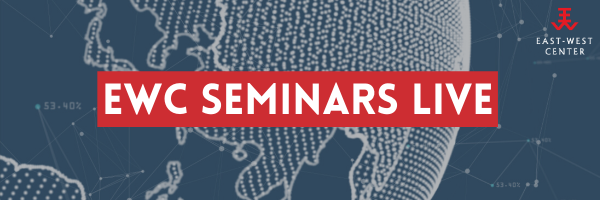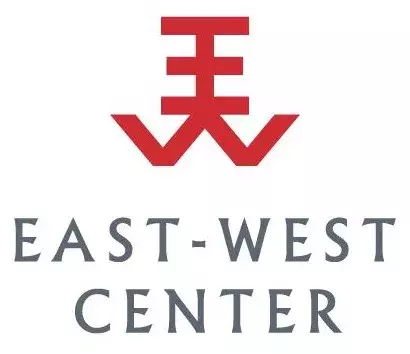Error message

The New Geopolitics of Afghanistan
Tuesday, September 28, 2021 | 4:00 – 5:30pm, Hawaii
Wednesday, September 29, 2021 | 5:00-6:30am Istanbul | 7:30-9:00am New Delhi
Time Zone Converter
REGISTER NOW!
Two decades after Western forces helped sweep the Taliban from power, and four months after President Joe Biden announced his intention to end America’s longest war, world leaders raced to evacuate their citizens from Afghanistan following the Taliban’s rapid takeover in mid-August. As Afghanistan lies at the geostrategic nexus of various great-power rivalries and offers rich deposits of rare earths and other valuable minerals, the immediate and long-term impact of the Taliban’s return to power is likely to extend beyond Afghanistan’s borders to the complicated knot of nearby states – China, India, Pakistan, Russia, and Turkey – as allies and foes similarly attempt to map a new diplomatic and strategic reality.
The international community is likely to confront three issues: political instability and escalating regional tensions, the prospect of Afghanistan becoming a haven for terrorist activities, and an influx of refugees as Afghans flee violence and persecution. For China, the U.S. withdrawal has raised concerns about the security of Chinese infrastructure projects and citizens as well as the growth of Islamist extremism in a country that abuts Xinjiang. India, moreover, is worried about terrorist recruitment, militancy in Kashmir, and Pakistan gaining leverage in the broader India-Pakistan conflict. In Pakistan, the Afghan Taliban’s return has delivered a strategic defeat to rival India, but also a potential boost to the Pakistani Taliban, which threatens Pakistan itself. Farther afield, Turkey has been an unwilling destination for Afghan refugees, prompting President Recep Tayyip Erdogan to announce he would work with Pakistan to stem fresh waves of refugees. Join us for an open conversation between think tank and policy experts exploring how China, India, Pakistan, and Turkey are likely to react to the Taliban’s return to power, the prospect of emboldened militant Islamists, mass migration, and the future of diplomatic and strategic relations in the region.
Panelists: (listed in speaking order)
- Michael KUGELMAN, Deputy Director and Senior Associate for South Asia, Woodrow Wilson Center, Washington, DC, USA @MichaelKugelman
- Niva YAU TSZ YAN, Fellow, Eurasia Program, Foreign Policy Research Institute and Researcher, OSCE Academy, Bishkek, Kyrgyzstan @nivayautszyan
- Harsh V. PANT, Director, Studies & Head of the Strategic Studies Program, Observer Research Foundation, New Delhi, India @orfonline
- Husain HAQQANI, Former Pakistan Ambassador to the U.S. and Senior Fellow & Director, South and Central Asia, Hudson Institute, Washington, DC, USA @husainhaqqani
- Murat SOMER, Professor, Political Science & International Relations, Koç University, Istanbul, Turkey (Turkey expert) @murat_somer
Moderator:
- Nirmal GHOSH, U.S. Bureau Chief, The Straits Times, Washington, DC, USA @karmanomad
Please check our webpage www.eastwestcenter.org/ewcseminarslive and follow us on Instagram @EWCSeminars for the latest updates!

The New Geopolitics of Afghanistan
Tuesday, September 28, 2021 | 4:00 – 5:30pm, Hawaii
Wednesday, September 29, 2021 | 5:00-6:30am Istanbul | 7:30-9:00am New Delhi
Time Zone Converter
REGISTER NOW!
Two decades after Western forces helped sweep the Taliban from power, and four months after President Joe Biden announced his intention to end America’s longest war, world leaders raced to evacuate their citizens from Afghanistan following the Taliban’s rapid takeover in mid-August. As Afghanistan lies at the geostrategic nexus of various great-power rivalries and offers rich deposits of rare earths and other valuable minerals, the immediate and long-term impact of the Taliban’s return to power is likely to extend beyond Afghanistan’s borders to the complicated knot of nearby states – China, India, Pakistan, Russia, and Turkey – as allies and foes similarly attempt to map a new diplomatic and strategic reality.
The international community is likely to confront three issues: political instability and escalating regional tensions, the prospect of Afghanistan becoming a haven for terrorist activities, and an influx of refugees as Afghans flee violence and persecution. For China, the U.S. withdrawal has raised concerns about the security of Chinese infrastructure projects and citizens as well as the growth of Islamist extremism in a country that abuts Xinjiang. India, moreover, is worried about terrorist recruitment, militancy in Kashmir, and Pakistan gaining leverage in the broader India-Pakistan conflict. In Pakistan, the Afghan Taliban’s return has delivered a strategic defeat to rival India, but also a potential boost to the Pakistani Taliban, which threatens Pakistan itself. Farther afield, Turkey has been an unwilling destination for Afghan refugees, prompting President Recep Tayyip Erdogan to announce he would work with Pakistan to stem fresh waves of refugees. Join us for an open conversation between think tank and policy experts exploring how China, India, Pakistan, and Turkey are likely to react to the Taliban’s return to power, the prospect of emboldened militant Islamists, mass migration, and the future of diplomatic and strategic relations in the region.
Panelists: (listed in speaking order)
- Michael KUGELMAN, Deputy Director and Senior Associate for South Asia, Woodrow Wilson Center, Washington, DC, USA @MichaelKugelman
- Niva YAU TSZ YAN, Fellow, Eurasia Program, Foreign Policy Research Institute and Researcher, OSCE Academy, Bishkek, Kyrgyzstan @nivayautszyan
- Harsh V. PANT, Director, Studies & Head of the Strategic Studies Program, Observer Research Foundation, New Delhi, India @orfonline
- Husain HAQQANI, Former Pakistan Ambassador to the U.S. and Senior Fellow & Director, South and Central Asia, Hudson Institute, Washington, DC, USA @husainhaqqani
- Murat SOMER, Professor, Political Science & International Relations, Koç University, Istanbul, Turkey (Turkey expert) @murat_somer
Moderator:
- Nirmal GHOSH, U.S. Bureau Chief, The Straits Times, Washington, DC, USA @karmanomad
Please check our webpage www.eastwestcenter.org/ewcseminarslive and follow us on Instagram @EWCSeminars for the latest updates!







